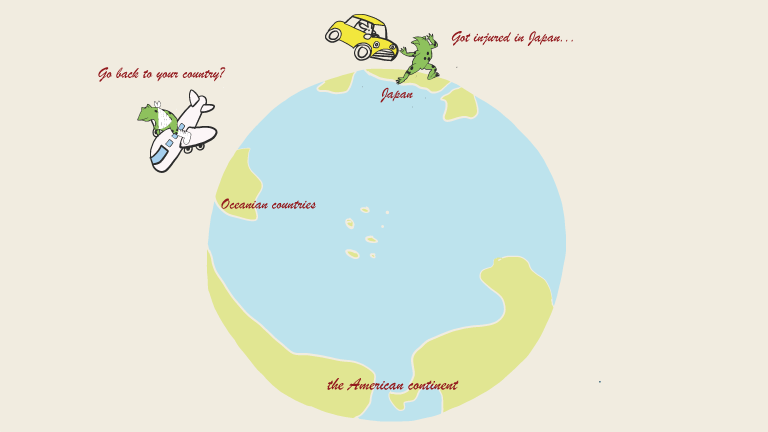
This article is for when you’re involved in a traffic accident while staying in Japan. Whatever nationality you have, Japanese law and rule apply to any of the traffic accidents that happen in Japan. Anyone who was found to be negligent in the crash will incur penalties according to Japanese law. Anyone who got injured in the accident due to the other driver’s negligence has a right to be compensated according to Japanese law. Japanese law always applies to car accident cases even in a case where an involved foreigner doesn’t qualify for a stay in Japan. So, what to do and what to note when a car accident happens are not different between local Japanese people and foreign people. However, there are a few differences, mainly in calculating the victim’s lost wages and consolation money. In this article, we take a closer look at those differences.
Lost wages
Whatever nationality you have, you have a right to be compensated for your loss. See this article: What compensation can I get after an automobile accident? In most of the cost items, the amount of compensation is the same between local people and foreign people. However, lost wages, which is one of the largest cost items, might differ depending on your nationality.
In principle, it’s calculated based on the victim’s actual wages. For example, if you are not Japanese, lost wages will be calculated based on your real wages in your own country. Let’s think you are Chinese and got injured in a crash while traveling in Japan. Your lost wages will be based on your actual wage in China where the income level is different in Japan.
Consolation money
In traffic accident cases in Japan, consolation money is only for human injury traffic accident. See this article: Is the damage, to humans or properties? It’s not paid for a property damage traffic accident. Consolation money for injury doesn’t depend on people’s nationality. However, consolation money for residual disability or death tends to depend on the living standard of each country. For example, if a victim is from a country of which living cost is lower than Japan, the consolation money will be lower.
What if a victim doesn’t qualify for a stay in Japan?
Even if a victim doesn't legally qualify for a stay in Japan, the victim has a legal right for compensation for his/her damages. Let’s think about one real case where a foreigner illegally worked in Japan and got injured in a crash. He would probably work in Japan for the coming three years if the accident had not happened. So, the three years lost wages were calculated based on the actual salary he got in Japan. His lost wage after the three years was calculated based on his actual salary in his own country. Legal qualification for a stay in Japan doesn't matter when calculating the amount of compensation. Lost wages are just calculated based on the worker's most probable working scenario.